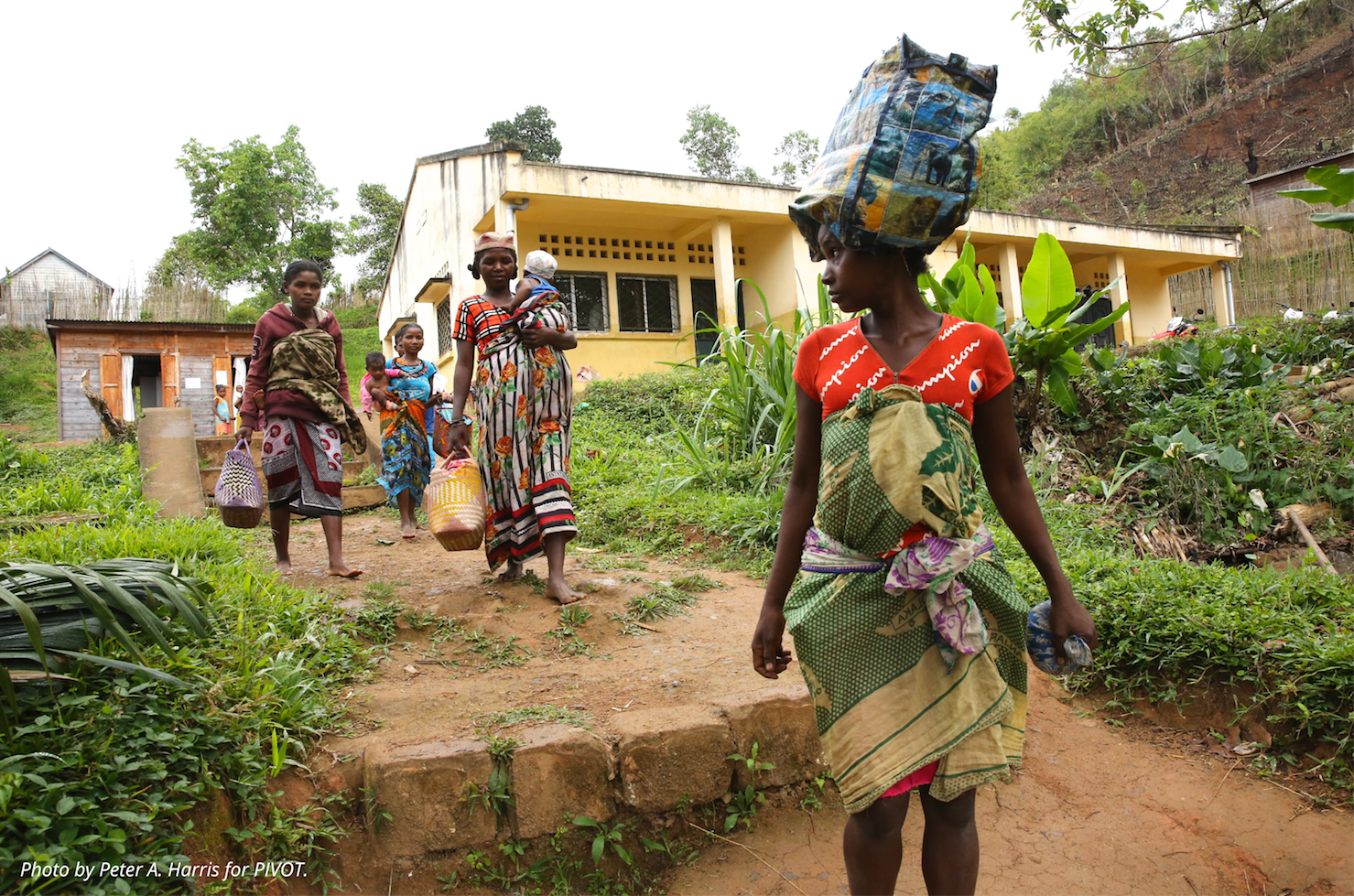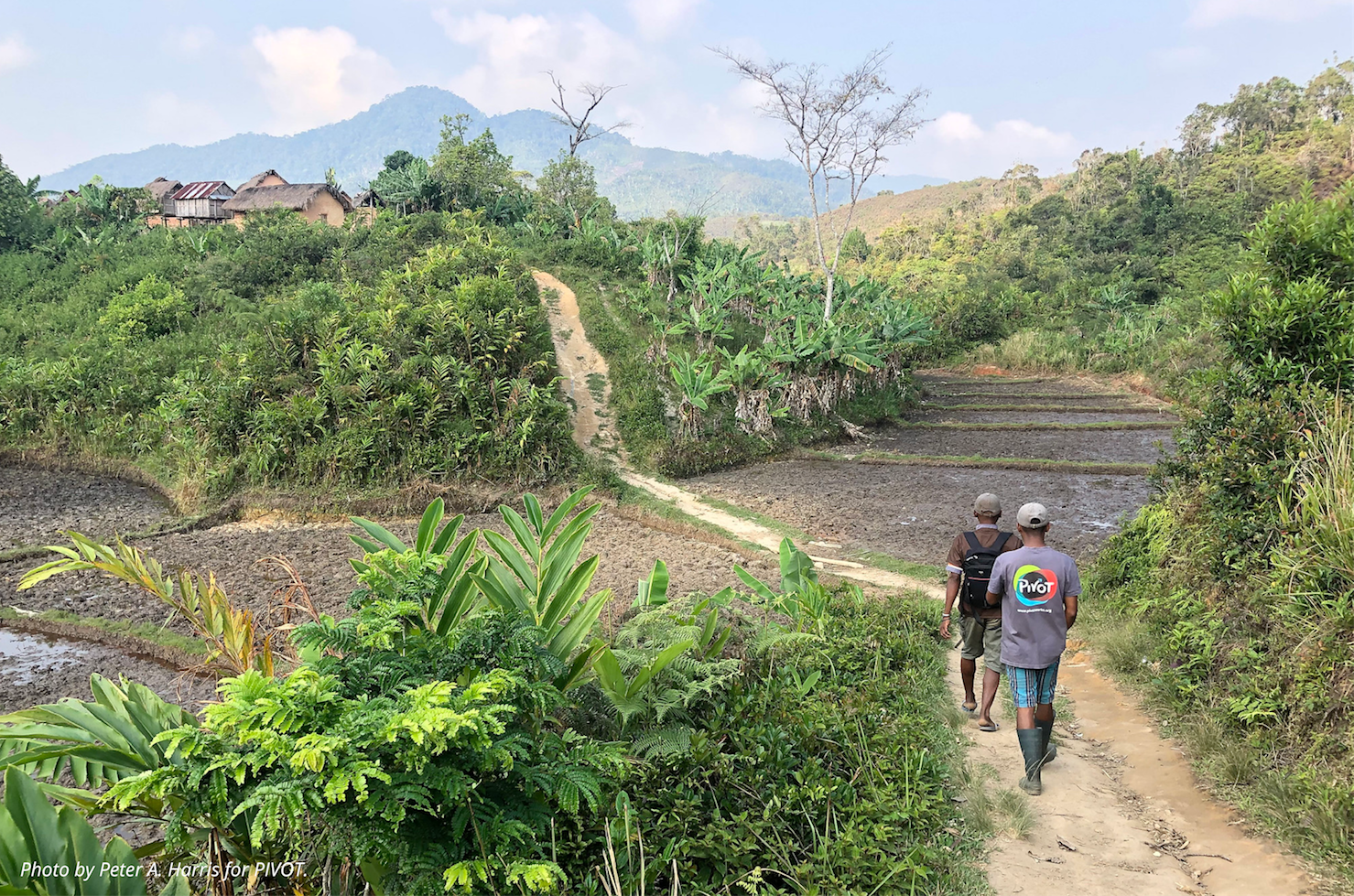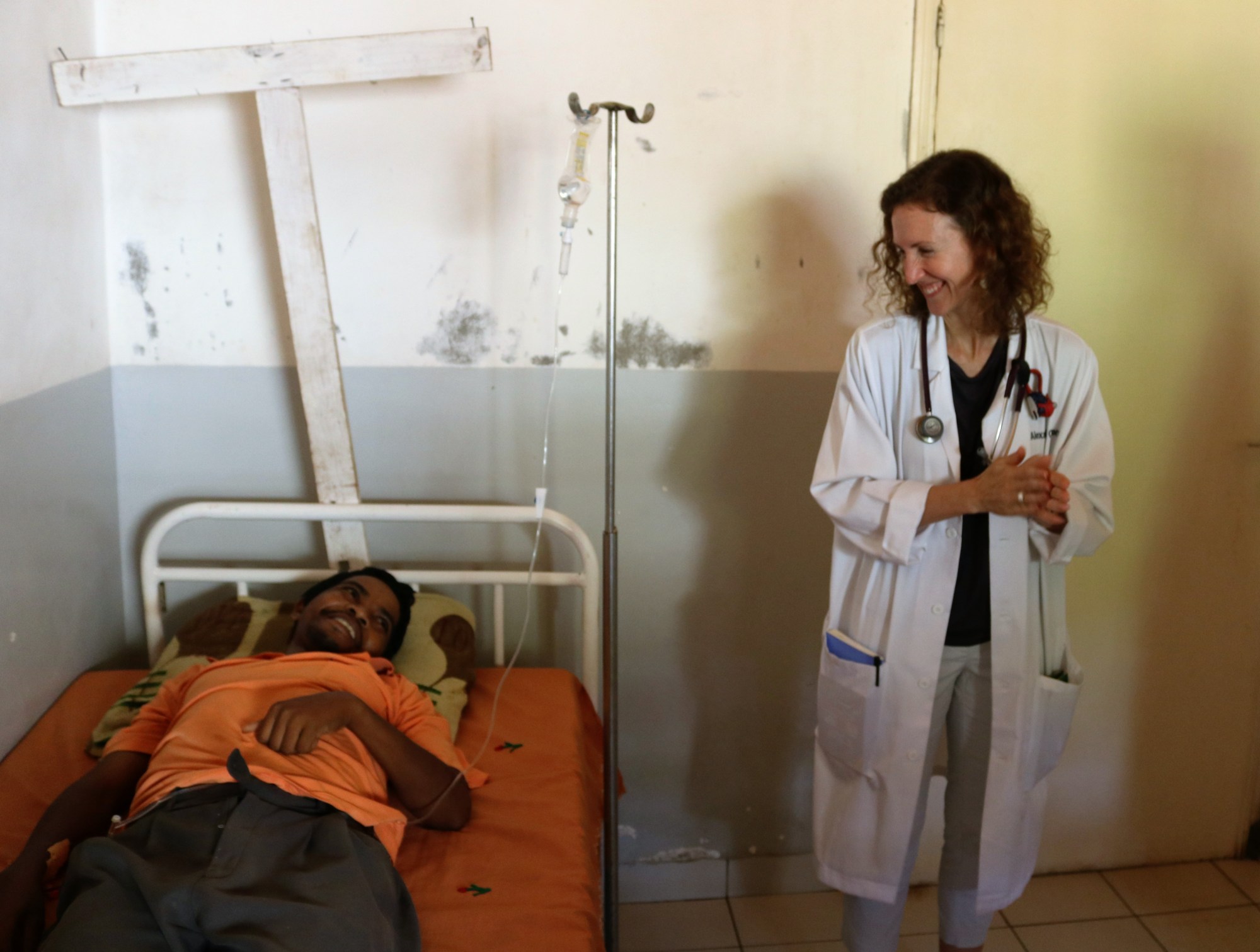12 Dec Field Note: The Path To Equity

This group of mothers walked 9 hours each way from their home village in order for their children to receive care at a PIVOT-supported health center – the closest option they have for basic health services.
Leading the group as they embark upon their return trip, Florine looks back at the health center that she has journeyed to every Wednesday for 4 weeks so that her 2-year-old daughter Clairentine (carried on her back) could be treated for malnutrition. On this particular day, Clairentine was discharged, having successfully completed her treatment.
Walking 18 hours to access health care is nothing short of incredible – but it is far from equitable.
An estimated 3.8 billion people worldwide lack access to basic health services, whose best option for care looks similar to, or worse than, Florine’s. Of those, about 100 million are at risk of falling into extreme poverty as a result of healthcare expenses.
In 2017, the United Nations declared December 12th to be International Universal Health Coverage (UHC) Day in order to increase awareness about the injustices faced by so many when it comes to healthcare, and to urge the global community to address them. Today, and every day, we are proud to be taking action alongside partners and peers to fight injustice and advance a shared vision of health as a human right.
This year, the PIVOT team is particularly excited to celebrate UHC Day as we launch plans to expand our geographic coverage and achieve UHC in Ifanadiana District by 2022.
After six years of work focused on improving care for particularly vulnerable groups (e.g., children under 5), we are taking steps to ensure every last man, woman, and child in Ifanadiana District has their needs met by the public health system. By expanding our geographic reach, professionalizing and paying the community health workforce, and removing user fees across the district, we are on the path to establishing a replicable district health system model that can be scaled across the country in partnership with the government of Madagascar.

In order to do so, we must first strengthen the systems that will enable us to reach the more than 70% of the population who, like Florine and her daughter, live more than 10 kilometers from the nearest health center. This will require creative solutions for supporting government health facilities that are inaccessible by car and can take up to 2 days to reach on foot.
While this presents a unique set of challenges to address, it also presents a profound opportunity to move the dial in achieving UHC in a district where more than two-thirds of the population lives below the poverty line. Side-by-side with the communities we serve, we are exploring the best ways to reach the most remote areas of Ifanadiana, and share the lessons we learn with implementers working to deliver healthcare in similarly challenging settings around the world.
In other words, families like Florine’s will soon be able to receive care directly in their home community, effectively eliminating a major obstacle to good health for her and others like her in rural Madagascar.
PIVOT’s number one value is health as a human right. We are driven by the pursuit of achieving equitable access to quality care for everyone, regardless of where they were born and how much money they have. International discussions on UHC often focus on health insurance plans, but insurance programs without quality care and trained staff cannot achieve health as a human right. Our integrated approach – which combines quality clinical care, strong operational systems, and rigorous data collection and analysis in partnership with the government – is what it takes to achieve UHC.
UHC Day is a reminder of our responsibility as a global community to ensure the right to #HealthForAll, and in Ifanadiana District we are making this right a reality.

Dr. Mayfield visits with a patient during rounds at Ifanadiana District Hospital.
